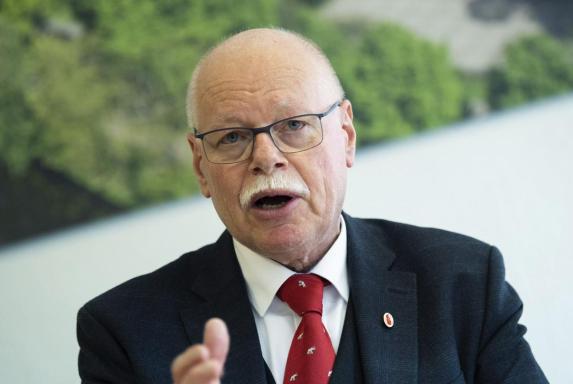The measures should have been able to get the virus under control, in a few weeks it would have squeaked. But now they were there again, the Prime Minister and the Minister of Health, addressing the people. “It’s a hard blow,” said the prime minister. “We had hoped for more.”
That’s how it went at the beginning of December 2020, exactly one year ago next week. Relieved, the cabinet had reopened society that summer. And when the virus revived left and right, people reacted cautiously: the catering industry closed a bit earlier, a restriction here and there. Until winter and a new variant – the ‘British’ – fueled the epidemic to full strength again and a new lockdown was a fact.
That turns out to be a stone that is hard to hit. See the joviality with which Hugo de Jonge announced last summer that we could ‘dance with Janssen’ again. An ‘error of judgment’, Rutte confessed at a press conference later. Or see how Minister Grapperhaus sang about the end of the mask: ‘Say mouth mask, where are you going, to the dirt, to the dirt.’ They have been mandatory again in all indoor areas for a month. Jump, sit, jump, sit. It is not so strange that citizens are now thinking: let it blow.
Relaxed too soon
This already went wrong in September, just like last year. The Outbreak Management Team (OMT) recommended opening the country very carefully, step by step, with a few weeks in between, as the extra contagious ‘delta variant’ was on the rise. But the cabinet decided to do it a little faster, “knowing how unpredictable and erratic this virus is,” Rutte added. ‘An important reason that we are now in trouble again is that we relaxed way too quickly’, says epidemiologist and OMT member Marc Bonten. ‘That politicians make choices in what they will and will not adopt from our advice.’
Two weeks ago: that stone again. The OMT recommended drastically curtailing domestic travel, just like during severe storms; the cabinet decided to leave it with an ‘urgent advice’ to work from home and receive fewer visitors, and in the meantime allowed the catering industry a few hours of slack in the early closing time proposed by the OMT. ‘I sometimes have the feeling that the government always follows the most cheerful opinion’, says epidemiologist Frits Rosendaal (LUMC). ‘There is a kind of unfounded optimism in the cabinet, where hope and faith have taken over from a sense of reality.’
Welcome to corona wave number four, the wave that painfully exposes the Dutch hardiness. Because the care capacity is still not in order. The test streets are again overloaded. Once again, it turns out that it is not possible to get vaccines, of which there are millions of doses ready, into the arms quickly. Free self-tests are still not widely used to detect the virus. The parliament is still divided, and the outgoing cabinet is unable to connect the country.
Rosendaal has been thinking for some time: you should actually abolish the OMT. “Not because I think they’re bad, but because it’s become a kind of power beyond power. A consultative body that makes compromises, after which the government makes new compromises on the basis of that.’ A kind of dilution of what should have happened, according to the epidemiologist: ‘Yet that hammer to smash the virus flat. But not Rutte’s toy hammer. If you intervene, do it hard. And at the beginning of a revival, not just at the end.’
Vaccination obligation
Against hammerers such as Rosendaal, there is an increasingly emphatic current: that of experts who prefer to leave the virus free – and who do not want to tackle the virus, but the approximately 1.6 million unvaccinated more harshly. A medical expert who only wants to talk to the newspaper under the condition of anonymity – ‘I work with patients, I can’t say this out loud’ – urges a vaccination obligation for over-50s and other high-risk groups. After all, they are responsible for the current overload.
‘No general lockdown, at most one for that special group. We have to stop fighting infections. Let the virus circulate among young people,” says the doctor. ‘Our whole system is stuck because we have so many unvaccinated people. But you have to draw the line somewhere. Solidarity has its limits.’
Really fighting the virus, or really tackling the unvaccinated: it is a fundamental, deep choice that the cabinet has once again postponed with the new, half-hearted lockdown. Until the next upswing, the next round, the next stumble over the same stone. In South Africa, the next, even more advanced variant of the virus is already warming up.
‘Politics should simply take the lead’, says Bonten. ‘Collective thinking, not every man for himself. That’s killing us now.’
–


